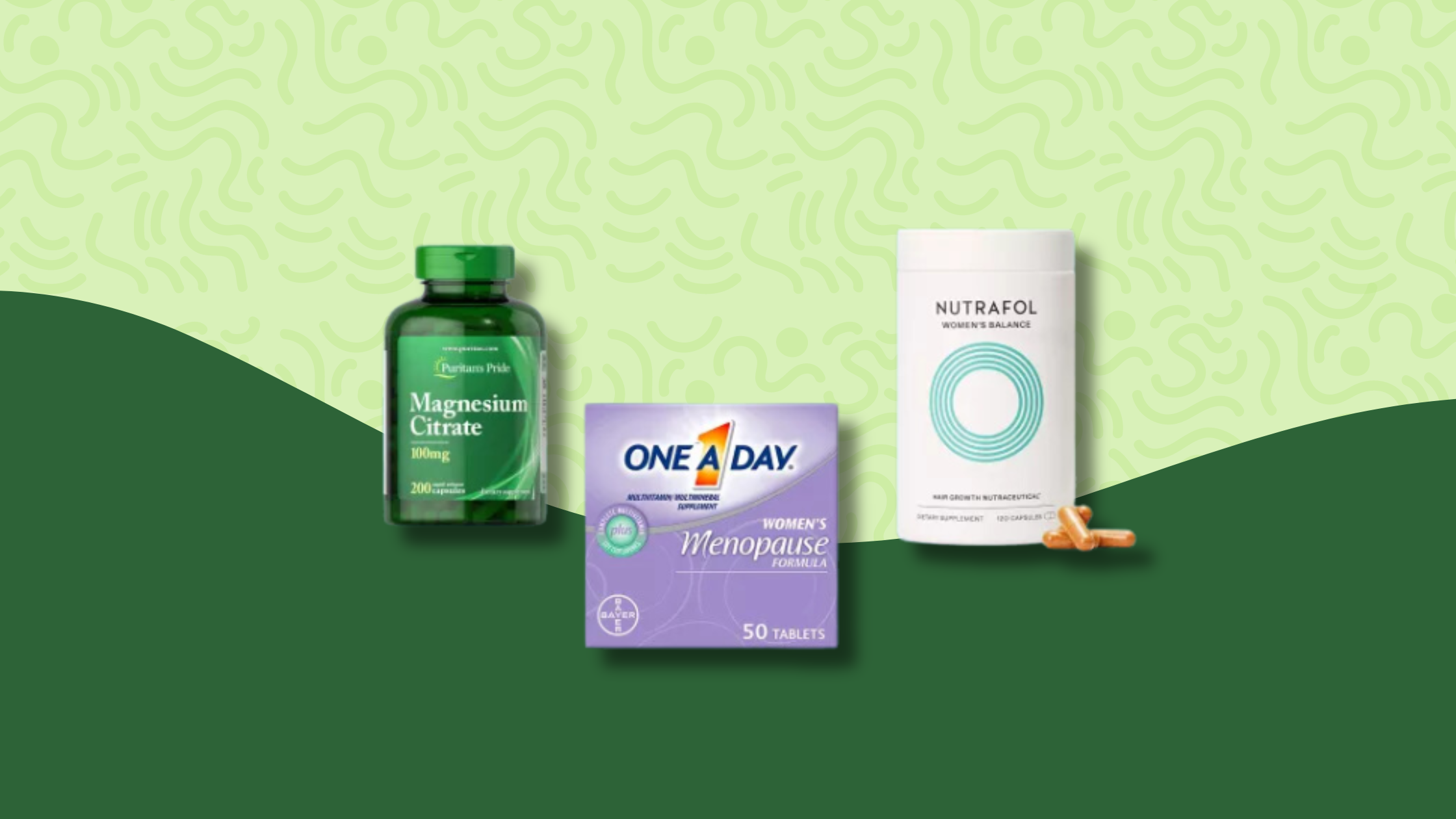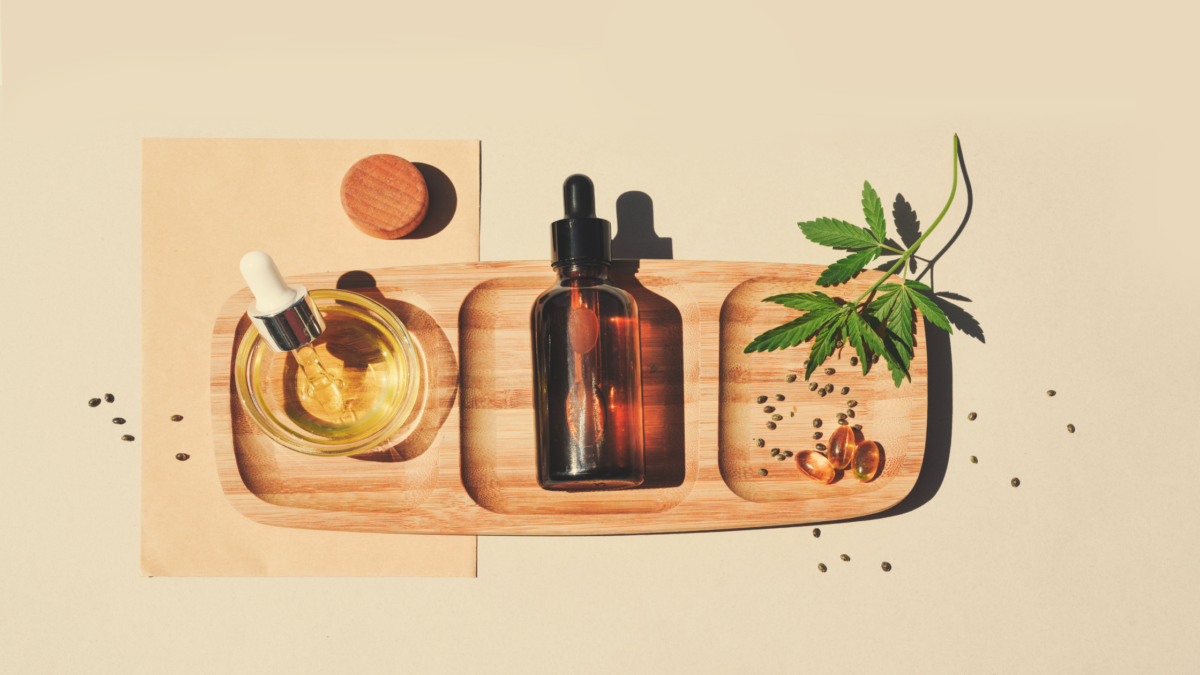


Medically Reviewed By Margaret Etudo, BPharm. Written By The Vitamins For Woman Team.
There are many questions about cannabis plants and cannabidiol (CBD). While recent research is limited, some say you can use CBD for menopause relief.
Cannabidiol (CBD) is a naturally occurring compound found within cannabis plants. These plants contain over 100 different cannabinoids, including the most abundant, tetrahydrocannabinol (THC), and the second most abundant, CBD. Other notable cannabinoids include cannabigerol (CBG), cannabinol (CBN), and cannabichromene (CBC).
There are two main types of cannabis: hemp (Cannabis sativa) and marijuana (Cannabis indica). Hemp is rich in CBD but contains minimal THC (less than 0.3%). While hemp seed oil lacks CBD, the flowers are the source for CBD extraction. Marijuana, on the other hand, contains both THC and CBD.
Unlike THC, CBD is non-psychoactive, meaning it doesn’t cause a high or alter consciousness and mood. Recent research suggests potential health benefits of CBD for various ailments, including sleep issues, epilepsy, gut health, anxiety, muscle pain, schizophrenia, and even menopause.
Focusing specifically on the potential benefits of CBD for menopause, let’s consider the benefits of CBD for menopause and answer questions like “How does CBD work?” and “Can CBD help with menopause?”

Normally, CBD is an exogenous cannabinoid or phytocannabinoid which is found in plants. However, your body’s endocannabinoid system (ECS) also naturally produces endocannabinoids. Anandamide and 2-arachidonoyl glycerol (2-AG) are the two major endocannabinoids. These compounds bind to ECS receptors and influence bodily functions.
You should know that CBD is structurally similar to endocannabinoids, blocking enzymes that break down anandamide. The increase in anandamide levels indirectly causes your ECS to be more balanced.
With all these pros, you would think CBD has been given a green light with the regulatory bodies. And you are right to some extent.
In 2018, the Farm Bill removed hemp from the federal list of Controlled Substances Act in the USA. Based on this law, some hemp-derived CBD products with less than 0.3% THC are federally legal. However, the state laws vary. Some states consider CBD products that contain more than 0.3% THC to be legal.
But that is for the US. In the UK, CBD-infused products are legal provided they contain less than 0.2% THC.
The U.S. Food and Drug Administration (FDA) also has not approved cannabis plants for medical use. However, the FDA has approved several drugs that contain individual cannabinoids.
When CBD binds to cannabinoid receptors in the ECS, it helps to trigger the release of neurotransmitters. This interaction also brings a very much-needed balance to the disruption of physiological processes like the regulation of:
CBD acts as a neurotransmitter, and its anti-inflammatory properties affect how your body responds to menopause-related symptoms like sleep disturbances, anxiety, joint pain and muscle soreness.
While the effects of CBD support for menopause are promising, extensive research is much needed.
Menopause comes with several discomforts. While there is no clear evidence of CBD as a cure for menopause, research suggests that it has a relaxing effect. Here are some benefits of CBD for menopause:
Thanks to Endocannabinoids which play a significant role in the sleep-wake cycle, CBD can help with sleeping troubles, which is a frequent symptom of perimenopause and menopause.
However, this isn’t the case for everybody. A study reviewed 103 people who used CBD over three months and came up with conflicting results. More than half experienced improved sleep, while one-quarter believed it worsened their sleep. Hence, you can see that CBD can help with sleep, but not everyone has the same experience.
Did you know that about 15% to 50% of perimenopausal and menopausal women experience anxiety and depression? CBD combats this by interacting with serotonin receptors in the ECS, boosting serotonin production – a hormone that controls your mood.
A study from 2015 proved that CBD can be used as a potential treatment for anxiety disorders like PTSD. Another research found that it can relieve stress and reduce depression. Despite these findings, new research on the mental health benefits of CBD for menopause is still in the works.
Six out of ten women between the ages of 40 and 64 experience muscle and joint discomfort. One of the causes could be low estrogen level. As estrogen decreases, your body produces more molecules that cause inflammation.
CBD has anti-inflammatory properties and acts as an analgesic during menopause, supporting your body’s natural response to inflammation by interacting with neurotransmitters. But you may find CBD combined with THC as it is more effective for treating pain. Nevertheless, the mechanism of CBD support for menopause joint pain needs more research.
Menopause is one of the leading causes of osteoporosis in women. Estrogen helps to maintain bone density. Sadly, bone mass density depletes as estrogen levels decrease, causing the bones to deteriorate quickly.
A study on rats showed that CBD stimulates fracture healing in the later phases. It promotes bone formation and increases the activity of osteoblasts. However, human-based research on osteoporosis is limited.
How you will use CBD will vary based on the type of product.
It is advisable to start with small doses and increase them gradually to determine the lowest dose with less adverse effects. After selecting the best dosage for you, stick with it.
According to the World Health Organization (WHO), CBD is generally well tolerated and has a good safety profile. However, the FDA is still investigating recent data on the potential risks of taking CBD for menopause.
You may experience side effects as a result of interaction between CBD and other medications. Some of these side effects include:
While there is no clear evidence of CBD oil on hot flashes, some women claim to have been able to sleep better at night. This indirectly makes it easier to deal with hot flashes.
There is no one-size-fits-all approach to using CBD for menopause. Your healthcare provider will recommend the best type of CBD based on your personal preference and the dosage you can handle
It may be challenging to determine what amount of CBD oil for menopause works best. Your body weight, how you react to it, and the product’s potency will affect the appropriate dosage. You can start with a small dose and adjust it until you get the desired effect on your menopause symptoms.
Legal in most places, CBD works by impacting the body’s endocannabinoid system, potentially improving sleep, anxiety, and pain related to menopause. While more studies are needed, some women report better sleep with CBD. It’s important to consult a doctor before using CBD to determine the right type and dosage for you.

medically reviewed by margaret etudo, BPharm. written by the vitamins for woman team.
Has anyone tried CBD for sleep issues during menopause? Wondering how effective it is before I give it a go.
Interesting article, Vitamins For Woman. It’s good to see more exploration into natural solutions like CBD for health issues.
love how this gives hope for natural remedies. so tired of using chemicals for everything.
CBD’s everywhere these days, ain’t it? Saw it in coffee even. Does putting it in your body really make a big diff for things like joint pain or is that just hype?
I’m not convinced CBD is the miracle cure-all it’s made out to be. Anyone actually see real benefits, or is it all placebo?
I’ve used CBD for my own joint pain and the relief was noticeable. It’s not a placebo, but results can vary from person to person.
u think it’s worth the price tho? I’m on the fence.
heard CBD might help with my knee pain, gonna give it a try. anyone else tried?
It’s refreshing to see an article that not only highlights the potential of CBD but also acknowledges the need for more research. Great job!
While CBD might offer some relief, we shouldn’t overlook the importance of a comprehensive approach to managing menopause symptoms. Thoughts?
Great to see CBD covered but let’s not forget to mention potential interactions with other meds. Always consult a health professional first.
if CBD is from plants, can I just eat the plant instead of buying oils or pills? just wondering lol.
[…] Many herbal supplements for menopause are thought to help regulate hormone levels, while others, such as sage, are known to lessen the intensity and frequency of hot flashes. […]
[…] mint leaves, or berries to improve vaginal lubrication. Moreover, studies show that drinking supplements containing cannabis oil, vitamins E and D, hyaluronic acid, fish oil, and DHEA can help with lubrication. Always remember […]
[…] it is for this reason that people may result in taking certain supplements, such as those with cannabidiol […]
Thanks for sharing. I read many of your blog posts, cool, your blog is very good.
Your point of view caught my eye and was very interesting. Thanks. I have a question for you.
[…] Read: Is CBD For Menopause Helpful? […]
[…] CBD for menopause mood has gained popularity, and for good reason. It interacts with the endocannabinoid system to help regulate mood and reduce anxiety without the high associated with THC. […]
[…] CBD (Cannabidiol): This non-psychoactive compound from hemp may ease anxiety and stress — two major contributors to menopause insomnia — while promoting deeper, uninterrupted sleep. […]
[…] night sweats and anxiety, but there’s more to it: progesterone, another hormone that promotes sleep, also declines during […]
Thank you for your sharing. I am worried that I lack creative ideas. It is your article that makes me full of hope. Thank you. But, I have a question, can you help me?